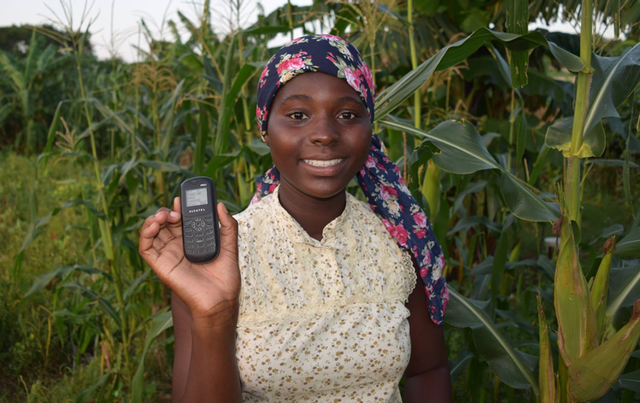
What is e-Agriculture Strategy?
An e-Agriculture strategy is using innovative digital technology solutions like precision agriculture, drones, big data, predictive analytics, and blockchain to improve social and economic outcomes for smallholder farmers.
e-Agriculture programs aim to increase food security by helping smallholder farmers improve modern ICT4Ag farming methods and access to markets. Agricultural ICT4D strategies encompass the full agricultural value chain and includes adjacent technologies like digital financial services and geographic information systems.
Communication in Agriculture
Smallholder farmers have limited knowledge, services, and technologies available to them. They typically need support to adopt modern farming methodologies.
Agriculture technology solutions focus on extension services for farmers to adopt new technologies and innovation. ICTs can amplify the efforts of the extension agents to help farmers plan what crops to grow, source inputs for crop cultivation, and selling their produce in local market.
Chatbots offer an exciting opportunity for governments to engage farmers on the social media platforms where farmers already congregate. For example:
- Facebook chatbots are a popular way to answer basic questions or help farmers apply for government support services.
- SMS text message chatbots can also help private sector companies develop new business leads and educate extension agents on their services.
ICT communication tools can play a crucial role in supporting farmers to access new inputs, credit, and markets with personalized and customized services.
Examples of e-Agriculture Programs
The potential to achieve high impact at the farm-level requires appropriate technology and adoption methodologies. International development organizations can use e-Agriculture communication programs like those below to support ICTforAg value chain ecosystems in developing countries.
The FEWS NET early warning system educates decision-makers who are responsible for creating and funding humanitarian response plans, and in December 2015, FEWS...
Published on: Jul 25 2016 by Guest Writer - Comments Off on 4 Secrets to ICTforAg Social and Behavior Change Communication
Most ICTforAg projects have specific behavior change goals. For example, the goal may be for farmers to change their practices to improve soil quality. Or for farmers...
With the recent publication of its e-RNR (renewable natural resources) masterplan, the tiny Himalayan country of Bhutan has joined an exclusive club of only a handful...
At the recent ICTforAg Conference, the “What Works for Ag Data: Apps, Tools, and Visualizations” session brought together three digital development professionals...
Farmers in Malawi had free access to market prices via mobile phones for about three months using HNI’s 3‑2‑1 Service. Usage data was rolling in. And...
Published on: Jun 20 2016 by Kristen Roggemann - Comments Off on We Need to Close the ICTforAg Partnership Gap
There was one panel discussion that really stuck in my mind from the recent ICT4Ag conference, and in particular one speaker: Chris Burns from USAID during the...
Published on: Jun 08 2016 by Guest Writer - Comments Off on User-Generated Content: Critical Yet Missing From ICT4D
Today, user-generated content dominates the first world’s online experience. User-generated content (UGC) can inform (Wikipedia), respond (Quora), recommend (Yelp),...
On Friday, we had the startling realization that fishermen do not use mobile phones to compare market prices of fish. Besides cultural and legal limitations to...
We all know the story. Fishermen use mobile phones to call ahead to different markets to find the one with best prices, so they can sell their catch for the largest...
Geographic information systems are changing the way we think about food security and famine early warning. At the Transforming Global Food Security event, we talked...












